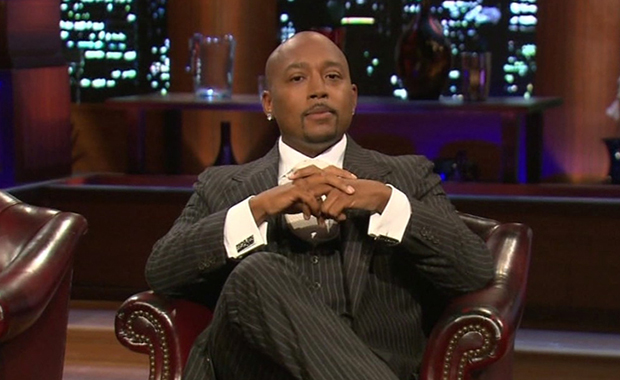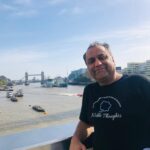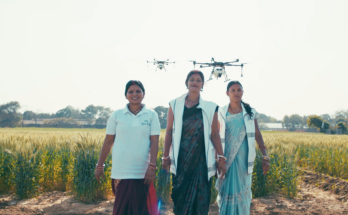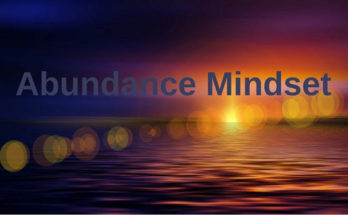by Darpan Sachdeva

Have you ever wondered what separates ordinary entrepreneurs from the truly extraordinary ones?
I’ve spent years studying success principles, and I’m convinced that one of the most powerful differentiators is the capacity to think beyond limitations. Few embody this principle better than Daymond John, whose journey from the streets of Queens to the boardroom of Shark Tank represents one of the most inspiring entrepreneurial stories of our time.
I remember the first time I heard Daymond speak. His raw authenticity and unwavering belief in possibility struck me deeply. Here was someone who refused to be defined by circumstances, who instead chose to define his own reality through vision, grit, and strategic thinking.
Daymond’s story is the quintessential American dream. He built FUBU (For Us, By Us) from his mother’s house, sewing hats and selling them on the streets of New York. What began with a $40 investment has transformed into a global brand with over $4 billion in product sales. This astronomical growth didn’t happen by accident – it was the result of a mindset that consistently asked, “why not?” instead of “why me?”
What fascinates me most about Daymond’s approach is his emphasis on strategic partnerships. As he wisely says, “Strategic partners are way more important than money. I’d rather split a dollar in half with somebody and make way more than go try and learn it myself and lose trying to learn a whole other industry.” In our hyper-individualistic culture, there’s profound wisdom in this collaborative approach. Success isn’t a solo sport – it’s a team effort that requires humility to recognize what you don’t know and who might complement your weaknesses.
The philosophy that permeates Daymond’s work is captured in his famous “Rise and Grind” mentality. He doesn’t just talk about hustle – he embodies it. “We do today what others won’t to achieve tomorrow what others can’t!” This perspective reminds us that extraordinary achievement requires extraordinary effort. The comfort zone might feel safe, but as Daymond notes, “Everything you want in life is right outside your comfort zone!” The question becomes: are you willing to get uncomfortable in pursuit of your dreams?
What I find particularly refreshing about Daymond is his relationship with criticism. Instead of being derailed by naysayers, he embraces them: “Remember, most people only hate you when they want to be you… I LOVE MY HATERS!” This psychological reframing transforms potential obstacles into fuel for the journey. The resistance you face often signals you’re moving in the right direction.
Daymond has codified his wisdom in three books: “Display of Power,” “The Brand Within,” and “The Power of Broke.” These titles alone reveal his understanding that true power comes from within and that constraints often birth our greatest innovations. Sometimes having fewer resources forces the creativity that abundance might never demand.
The video below captures the essence of Daymond’s journey and philosophy. I encourage you to watch it not just passively, but actively – with a notebook in hand. What strikes you about his mindset? Where could you apply his thinking to your current challenges?
What would change in your life if you adopted Daymond’s perspective that “Nothing is impossible; the word itself says ‘I’m possible’!”? This isn’t just clever wordplay – it’s a fundamental shift in how we perceive boundaries. Too often, we mistake our imagination’s limitations for reality’s constraints.
Perhaps the most practical advice Daymond offers is about timing: “Don’t wait for the ‘perfect time’ – you will wait forever. Always take advantage of the time you’re given and make it perfect for you.” This resonates deeply with me because perfection is the enemy of progress. The perfect moment never arrives; we must create it through decisive action and adaptability.
As you move forward in your personal development journey, consider how you might think bigger in your own context. Where have you unconsciously limited your vision? What would you attempt if you knew you couldn’t fail? How might strategic partnerships accelerate your progress?
Remember that thinking big isn’t about grandiosity or ego – it’s about refusing to let temporary circumstances dictate permanent possibilities. It’s about seeing potential where others see problems.
Daymond John didn’t succeed because he had special advantages – he succeeded because he had special perspective. And that, my friends, is something each of us can develop. The question isn’t whether you can think big; it’s whether you’ll choose to.
What will you choose today?
 Darpan Sachdeva is the CEO and Founder of Nobelthoughts.com. Driven by a profound dedication to Entrepreneurship, Self-development, and Success over an extended period, Darpan initiated his website with the aim of enlightening and motivating individuals globally who share similar aspirations. His mission is to encourage like-minded individuals to consistently pursue success, irrespective of their circumstances, perpetually moving forward, maintaining resilience, and extracting valuable lessons from every challenge.
Darpan Sachdeva is the CEO and Founder of Nobelthoughts.com. Driven by a profound dedication to Entrepreneurship, Self-development, and Success over an extended period, Darpan initiated his website with the aim of enlightening and motivating individuals globally who share similar aspirations. His mission is to encourage like-minded individuals to consistently pursue success, irrespective of their circumstances, perpetually moving forward, maintaining resilience, and extracting valuable lessons from every challenge.


